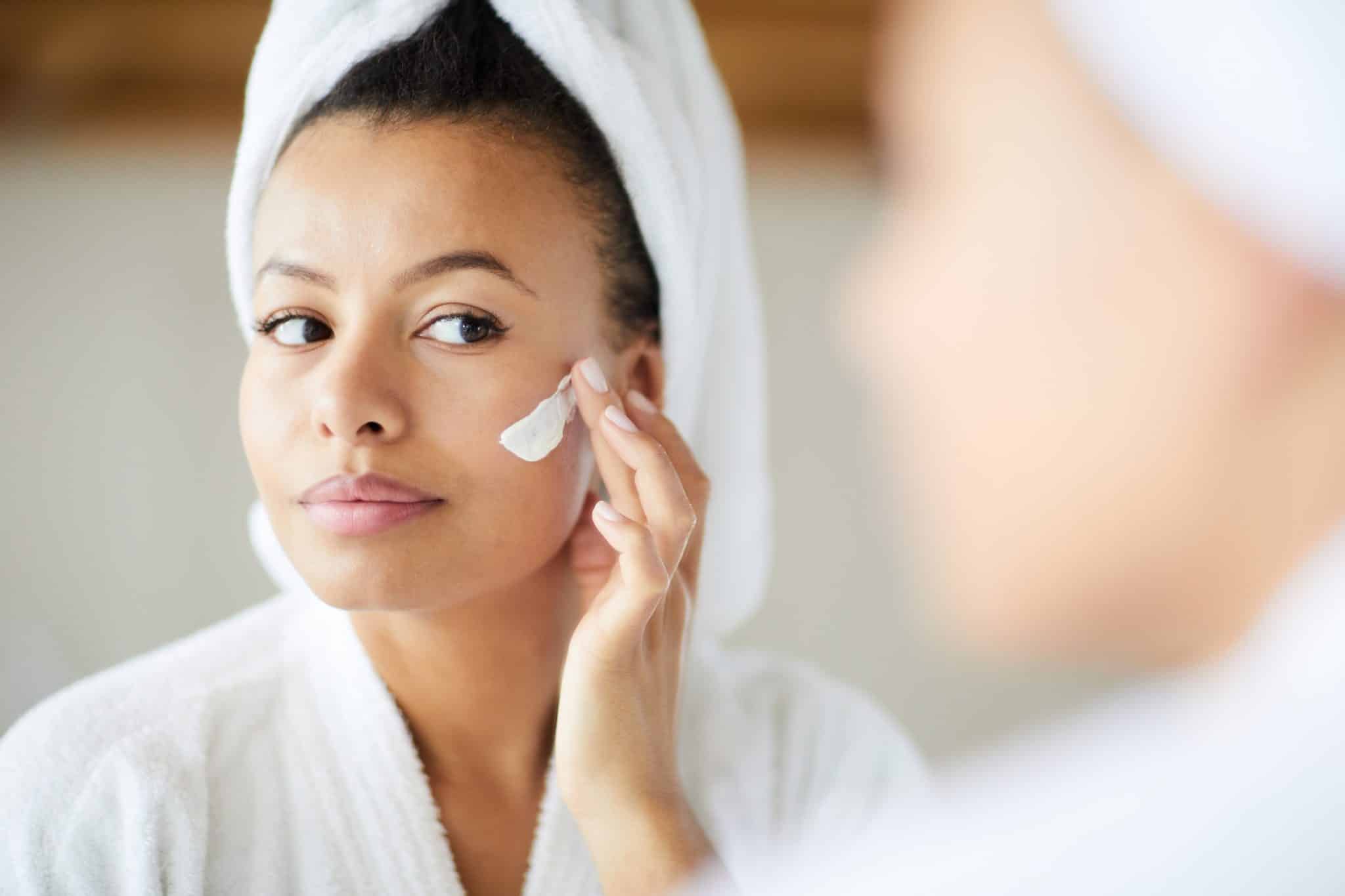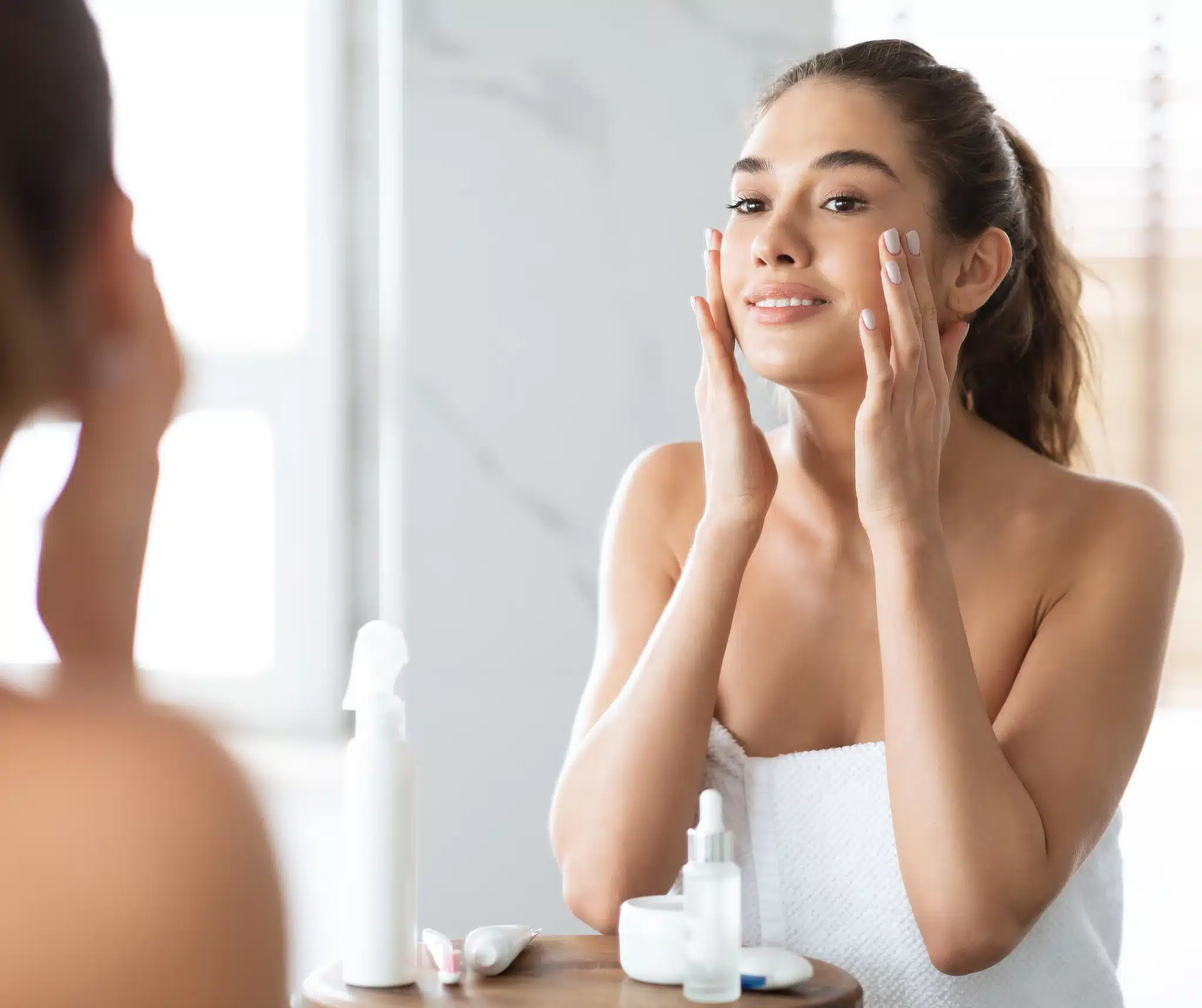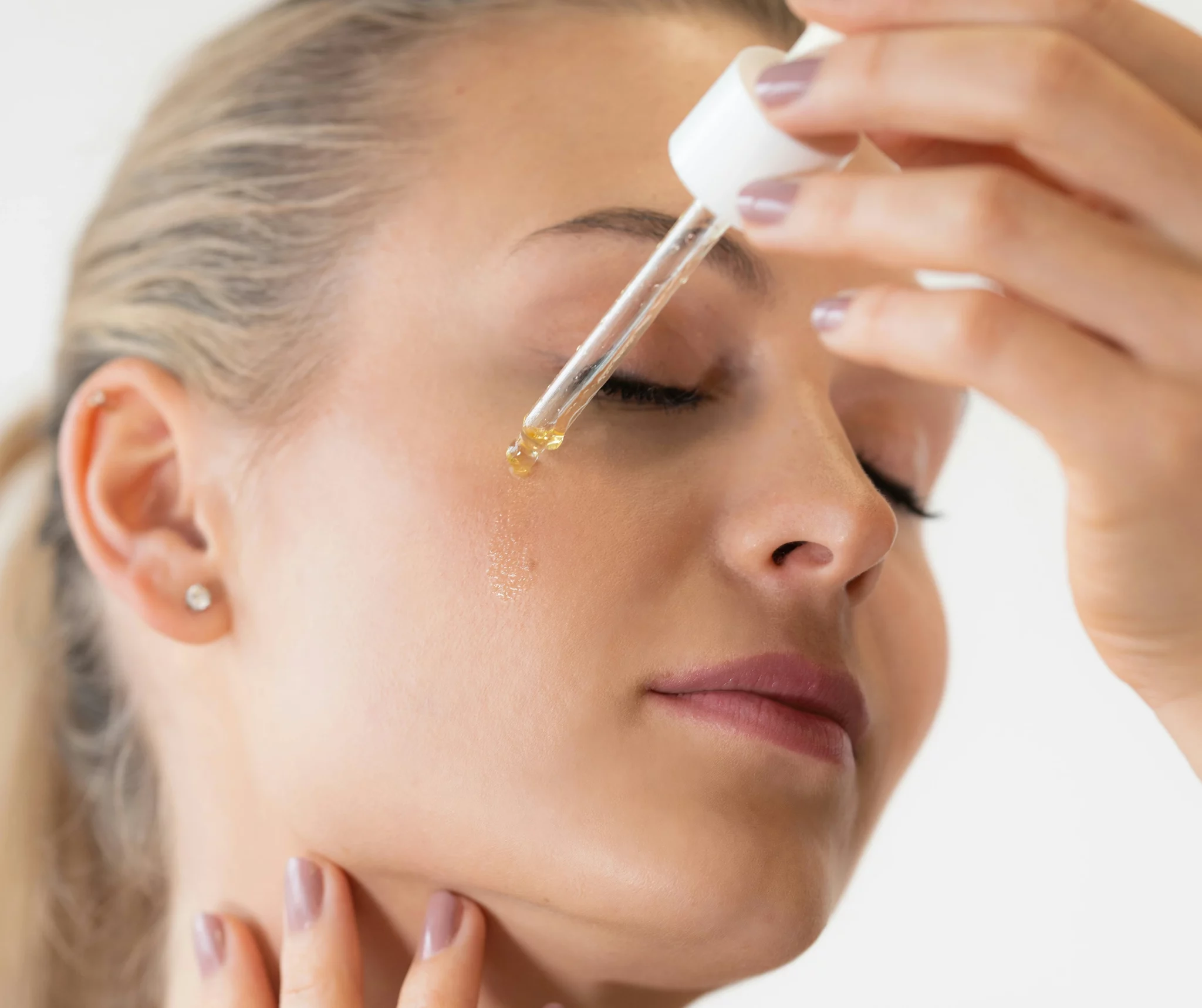

It’s very easy to build a skincare routine that is effective, simple, and well-tolerated. However, I’ve been noticing recently that people are overthinking this.
My hundreds of thousands of followers on Instagram and TikTok have been asking me about specific ingredients. Should I use a product with Niacinamide? Should I avoid products that contain denatured alcohol?
My answer is always the same: You need a skincare routine for your face and body that has a purpose.
Every skincare routine I build for my patients includes three parts: treatment, maintenance, and prevention.
Part 1 of your skincare routine: Treatment
The treatment part of your skincare routine addresses photo damage, or sun damage. The gold standard for treating sun damage on the face and body is retinoids. I recommend that everyone (starting in your early 30s, or earlier if you also have acne) use retinoids, because these superstars can also help prevent sun damage.
Retinoids are derivatives of Vitamin A that help stimulate the production of collagen, minimize pigmentation abnormalities, and keep the skin surface smooth, which substantially improves the health and appearance of sun-damaged skin. Once you start using retinoids, you’ll see a change in your skin – fewer brown spots, fewer scaly spots, and overall clearing of pigmentation.
In my practice, we offer over-the-counter Retinol and Retinal (usually for beginners) and prescription-only tretinoin, tazarotene, and adapalene. Because they are known to cause some skin irritation when first used, we provide patients with careful instructions on how to build up a tolerance. People often stop using retinoids because they weren’t taught how to use them properly. We will guide you to ensure you are comfortable so that you stick with this—hopefully for life!
We do not recommend compounded retinoids, which contain ingredients meant to combat inflammation. There is no scientific evidence that these additional ingredients are effective when formulated together with retinoids. It’s better to use the anti-inflammatories in a separate skincare product.
We also recommend using antioxidants like Vitamin C, which are proven to help repair sun damage.
Part 2: Maintenance
As I’ve written previously, DNA repair enzymes begin repairing the physical damage to your skin caused by exposure to radiation, UV light, or reactive oxygen species at the time the damage is being done. This is remarkable.
The reason I categorize them as maintenance rather than treatment is because the earlier you start using DNA repair enzymes, the less DNA damage you accumulate over the years.
Just because you’re in your 40s or 50s doesn’t mean it’s too late. Scientific evidence shows that using them at any point in your life can help reverse some of the damage that’s done and maintain the health of your skin in the future.
Part 3: Prevention
I talk about sunscreen often because it’s the easiest way to prevent serious damage to your skin. Apply daily and reapply frequently year-round, even if it’s cloudy.
If you are traveling to Europe this year, pick up my favorite chemical sunscreen, Anthelios UVMune 400 from LaRoche Posay. (It is not available in the US due to FDA regulations, so don’t mistake the version available at your local CVS for the European version. It has similar packaging but it is not the same formula.)
However, there are many mineral sunscreens in the US that are just fine at shielding your skin from damaging UVA light. Formulations vary; some are too thick, too white, and too sticky. We can discuss which sunscreen is best for you at your next visit.
But what about these products?
One skincare issue my clients bring up often is lax, or loose, skin, which is caused by loss of collagen as we age. There are so many firming lotions, creams, and serums on the market – but none are actually scientifically proven to work. Some patients see nice results when they use them, and since there is certainly no harm, go for it if you’re willing to spend some money.
I am also asked about growth factor serums for minimizing the appearance of fine lines and wrinkles and peptide serums to plump and hydrate skin. Again, there is no real scientific evidence that they do much, but interestingly, those who have used these products for years notice their lovely effects on skin.
The lack of hard science behind them doesn’t mean you can’t use these products, which I refer to as “add-ons”. Some of my patients swear they see results and love how moisturizing they are. And I tell them, “If you like them, use them. But if your skin doesn’t look or feel good, it’s not a good product for you.” Just keep in mind that these add-on products are not inexpensive.
A professional can help you build a routine
A professional – preferably your dermatologist – can help you choose the best products for your skin. I have spent years trying products, and I have found many I love and can happily recommend.
The new year is a good time to set up a new skincare routine for your health. Call us to book an appointment at 212-288-8222.
And if you don’t already, follow us on Instagram! In 2024, I am going to start offering special discounts on skincare products we carry – but the offers will only be available on Instagram.
Posted In: Skin Care
Related Posts

February 16, 2026
Skincare in Your 20s: Common Concerns and Expert Tips
When you’re in your 20s, taking care of your skin can feel overwhelming. Everywhere you turn, there’s another influe...

January 2, 2026
Why DNA Repair Enzymes Matter for Healthy, Beautiful Skin
Every day, your skin works hard to protect you from the world — sunlight, pollution, and environmental stress can all ...

November 27, 2025
Does Sunscreen Prevent Tanning? The Truth About UVA Rays
I often meet patients who sit across from me in the exam room, proudly telling me they've been diligent about wearing su...


